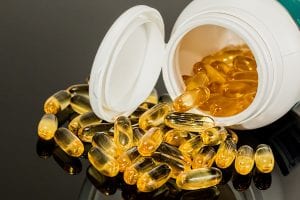If you are a regular consumer of dietary supplements, you’ve likely seen the action taken by the New York Attorney General took against prominent retailers for selling inauthentic herbal supplements. Four national retailers — GNC, Target, Walgreens, and WalMart — all received cease and desist notifications demanding that the retailers “desist engaging in the sale of adulterated and/or mislabeled herbal dietary supplements.” While this action took place in February 2015, the news is still spreading wildly among supplement users and being brandished by those opposed to supplements.
Those opposed to supplements have used this action to decry all supplements as worthless and even harmful. Yet, the benefits dietary supplements provide to today’s stress-laden, nutrient-starved, and pollution-sucking human population has never been more necessary.
While industrialized countries like the United States are not facing true famines like some third world countries, they are indeed experiencing starvation and a nutrient famine. Today’s fast foods, boxed convenience foods, genetically modified crops, and sugary beverages are little more than empty calories — and sometimes introduce harmful substances into the body to boot — devoid of the nutrition your body needs to operate at its best. These “foods” devoid of nutrients leave the cells starved of key nutrients, leading to inefficient function of vital body systems.
This makes dietary supplements that supply missing nutrients and support cellular and body systems function critical to overall well-being. While they are not meant to replace eating better — that’s why they are called supplements, not replacements — they can complement eating better. One key is that these supplements must be derived from whole foods or herbs that the body readily recognizes and utilizes to encourage optimal function of key body systems. Synthetic nutrition, vitamins, and minerals — like that perfect 25 percent of vitamins and minerals found on cereal boxes — added to foods or masquerading as a dietary supplement cannot replace whole nutritious foods and supplements.
So, how does one choose a quality supplement that is authentic, pure, and unadulterated? Here are five tips to choosing a quality dietary supplement:
NSF certification. Look for supplements with the NSF certification on the label. NSF International is a respected and recognized third-party certifier of dietary supplements that ensures the 
United States Pharmacopeia. Review the label for USP certification. The USP is a non-profit scientific organization that sets standards for potency, quality, authenticity, and purity of medicines, food ingredients, and dietary supplements. The widely recognized standards set by the USP are used by more than 140 countries globally and reduce the introduction of contaminants and adulterants in dietary supplements.
FDA tainted dietary supplements list. Check the FDA list of tainted supplements before purchasing. The United States Food and Drug Administration maintains a list of some of the dietary supplements that have been found to contain potentially harmful hidden ingredients or are considered hazardous to human health. Check the list regularly to avoid purchasing fraudulent and harmful products.
Good Manufacturing Practices. Buy supplements from a company that follows the current GMPs. The GMPs are a system designed to ensure that products — in this case, dietary supplements — are consistently produced and controlled according to established quality standards. These standards include all aspects of production such as raw materials, facilities, equipment, and the training and hygiene of staff.
Scientific research, evidence in support of the supplement. Look for reliable evidence that the supplement you intend to purchase has a proven benefit in scientific research. PubMed — the National Institutes of Health (NIH) database — is a great resource to look for research and evidence. Another option it to ask the retailer for any published studies that support the efficacy and safety of the supplement you want to buy.
To learn more about the best forms of vitamins and minerals, as well as optimal doses, see The Doctor’s Guide to Surviving When Modern Medicine Fails

NSF certification wasn’t something I was aware of. It does seem like a good thing to look for on herbal or dietary supplements. That way, you know they are made safely and have good ingredients in them.
Very cool post! I browse your blog fairly often and you always post great
stuff. I shared this on Facebook and my followers really enjoyed it.
Keep up the good work! 🙂
Comments are closed.